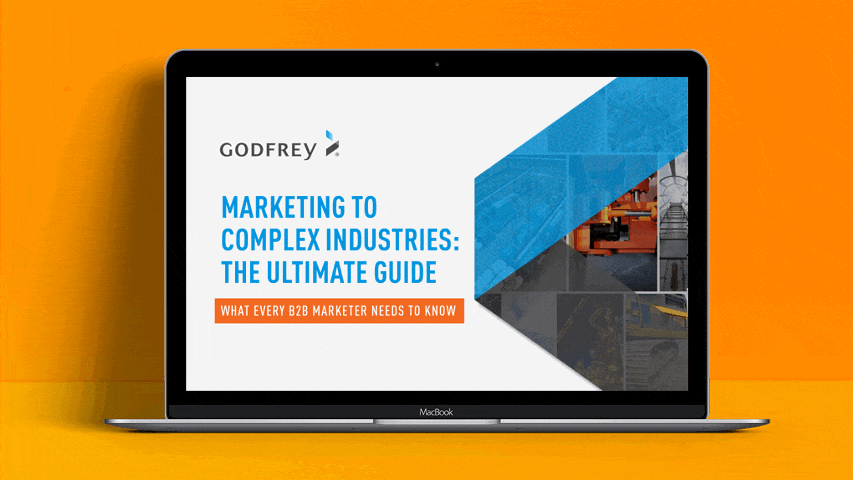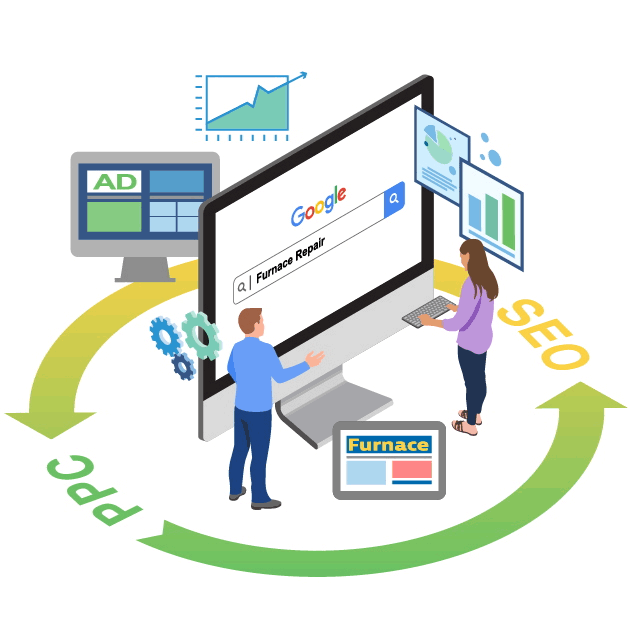Why Link Authority Still Matters for SEO

Google continues making daily changes to their algorithm to improve search results, but links remain the most important.
It’s important to ensure that your website is ranking in organic search for terms your target audience is searching for. Studies have shown that organic search is one of the biggest contributing marketing channels to increasing B2B leads and sales.
Paths to purchase and sales processes have both evolved. Engineers, scientists and modern B2B buyers are now using search engines more commonly than a decade ago, and B2B organizations are realizing organic search campaigns are now a viable way to succeed in reaching their target audience.

B2B buyers today are more educated, and expect to find information readily available on your website to help them make a decision. According to Google, nearly half of all B2B researchers are millennials. As the demographic continues to change, and as more millennials enter the workforce and are promoted to leadership positions, B2B buying trends will continue to shift.

What Your Business Can Do About It
In order to get in front of these buyers, your website has to rank highly in search engines for the keyword phrases they are searching for.
Many B2B brands had never previously considered, valued or trusted organic search. Whether it’s doubt that their target audience uses search to find their products or services, a disjointed website due to working with multiple agencies or falling flat from ‘doing SEO’ in-house, many B2B businesses typically turn to paid search to show up in search results for competitive terms.
However, not all of your target audiences will click ads. Various studies have shown that only approximately 20 percent of people will click ads. The other 80 percent either don’t trust advertisers or faithfully ignore ads, skipping over the top ad placements and opting only for organic listings.
A recent study from Moz shows that only 2.6 percent of search queries resulted in a click on an ad. Ultimately, this is why B2B companies are now allocating more of their marketing budget toward SEO: to show up in top positions for organic search.
Links Still Matter
Contrary to popular belief, links continue to be one of the most important ranking factors in Google’s search algorithm. Google is always making changes to their algorithm to improve the search results, to the tune of three changes per day. Through major updates like Panda, Penguin and Hummingbird, links have remained a constant in the evolving algorithm of more than 200+ factors since Larry Page & Sergey Brin founded Google in 1996.
Google removed the PageRank Toolbar functionality in Chrome and other browsers in 2015. Although the actual measurement can no longer be seen, PageRank is still a core element with which Google was built on and heavily relies on.

Google has reportedly even tried to remove links entirely from the algorithmic equation and found the search results were less than stellar. After all, Google’s main purpose is to help users find what they are looking for.
If users aren’t consistently finding the information they are seeking in Google, they’ll get frustrated and seek alternate search engines such as Bing or Yahoo.
Why Links Are Important
Having a great website and share-worthy content provides a solid foundation for an SEO strategy. But it’s equally important what people are saying about your brand online, who they are, and how they mention your brand or link back to your website.
At the end of the day, whether a link to a website comes from a news site, a blog, a forum or a social post, it’s still a link that can be crawled and assessed by search engines. But not all links are valuable.
Some links have more value than others, and this is why Google continues to use links as one of the primary signals for determining popularity when ranking search results.
There are many link attributes that search engines can measure for links to a website, including:
- anchor text – what link text is used for each link?
- location – is the link found contextually within the content, header, footer or site-wide?
- source – does the link come from a blog, forum, directory, press release or somewhere else?
- authority – how important is the linking source?
- type of link – is the link text-based, an image or a redirect?
- follow vs no-follow – can search engines crawl and value the link?
- link velocity – how quickly are links gained or lost?
These metrics are important when assessing your website’s backlink profile and comparing with top competitors, but what’s more critical is understanding how having a steady stream of new quality links to your website can positively impact your website’s overall rankings and search visibility.
Why Your Website Isn’t Ranking
SEO isn’t always like the Field of Dreams movie where you just ‘build it and they will come.’ Many brands build great websites with valuable content and no technical SEO issues, but their website’s visibility in organic search is lackluster, much less than it could be.
If you look at the top websites in Majestic’s Million list of top linked domains such as Wikipedia.org and Amazon.com, it’s not hard to understand why these popular websites continue to dominate top search result positions. They are repeatedly linked to over and over again.

Websites that produce valuable, resourceful and evergreen content that’s worth sharing and linking to will normally see continued improvement in authority and visibility in search results over time.
Sharing your content on your brand’s social media profiles is a good first step, but what happens when no one is sharing or linking to your content? Sometimes, you need to develop relationships and nudge editors to expand your reach.
If done correctly, reaching out to media outlets and engaging with industry influencers to promote link-worthy content can have a strong impact on getting new links and helping to move the needle.
For businesses that do not command the same amount of link equity as their competitors, there’s work to be done. You can have the best website, but if there’s not enough link authority, you will trail behind your competitors in the search results and your potential customers will not find you.
If you are an industrial company looking for help creating and executing a custom B2B SEO strategy that works, contact Godfrey today!
Matt Boaman - Vice President, Marketing Channels
Matt’s digital expertise and results-oriented approach has helped advance clients' digital program performance. In his role as vice president of marketing channels, he leads the digital, public relations and media teams.




